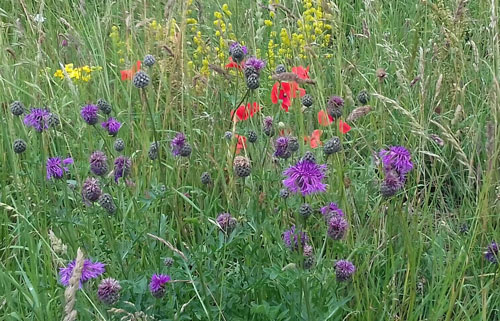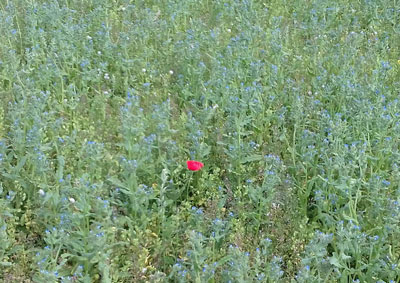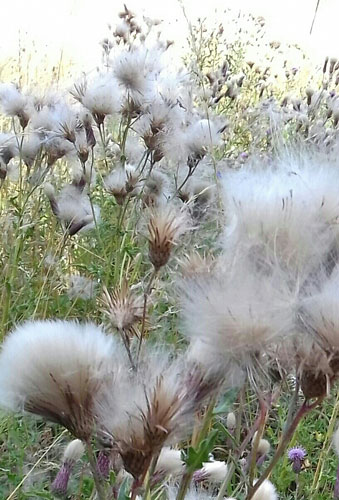About Us
In the teeth of the 2008 recession, my husband Derek and I thought it would be fun to sell our house in London and take off in our leaky old motor home and rid ourselves of the impediment of a four-walled existence for a while.
Eight years later we were still on the road. Only now, we were reluctantly surfing the housing market.
The conclusion to our travels was brought about by a little puppy wandering onto our lane on a busy motor-way in Algarve. We screeched to a halt and before you could say, ‘let’s go to India next year!’ we scooped her up and she, Flora, put a big hole in our ‘bucket list’ and anchored us to England.
Our surfing took us from Cornwall to the Western Highlands and anywhere in between; settling down was serious business. Then we remembered that it had once taken us four months to travel from Kent to Scotland and on the way, we had discovered the magnificent corner of England we now call home: North West Norfolk. We parked our wheels in September 2018, and exactly ten years after abandoning, bills, council tax, and more bills, we went back to them.

Our Flo’s first sight of the sea.
During our wanderings, a project had been mulling around my mind which had become important to me. We had camped mainly on farms, befriended farmers, and we learned about the sometimes not quite such rural idylls. But, for a couple of townies, we thrived on rusticity. Cattle would shake us awake scratching their backs on our wing mirrors; we counted real sheep, careered cross country in pony and trap; babysat 15-year-old turkeys and have endless stories.
However, nipping at the wheels of our wagon was the reality that many farmers often had their backs to the barn in ways incomprehensible to city folk. Moreover, there was a price to pay for increased production which led invariably to the loss of habitat for the creatures sharing our island. Specifically, the shrinking of `set aside’ land which had been so beneficial for all our wildlife. Britain was sleepwalking its bugs into oblivion (except in Scotland! Yikes!).

Camping in flower meadows gave us dreams.
This land, compared to the lushness we had experienced in Normandy for instance, was becoming a desert. And now, with climate change taking the world’s attention, was there not a simple way we could act without waiting for the vagaries of the anointed?
There are countless fantastic projects to fight the imminent gloom of an insect-less world, but I want to add mine. And here in Ringstead, with a population of 344 – now proudly including us – I could try my plan: a plan, for which the creation of an art gallery would be the catalyst.
And it is this: to encourage villagers in England to adopt an acre of land to restore from the ground up: The Acre per Village Initiative.

When we care – field edging further up our lane.
England boasts over 30,000 villages and this idea could have a huge environmental impact. The cost per acre would vary nationwide. Payment for loss of crop to a farmer near Ringstead, for instance, would be about £300 per annum. If the land could be simply left for reversal, the cost could be light. Assistance with tractor and hoe or reseeding would add to the cost.
Our village of Ringstead lies cradled within the Le Strange Estate and its farmers are tenants – a fact which could make things a tad more complicated. We formed a small group and met the landowner to find out.
Our meeting went well and in March 2020 we were able to lease ½ acre ground beside the ancient drove road of Peddars Way South. This was a start. The land lies adjacent to an already established wildflower area with which we hope to merge to form Peddars Meadow. On our future wish list was undoubtedly the opportunity to rent field edging a few meters wide running a mile or so along Peddars Way to meet up with the brilliantly organic Courtyard Farm. Without dreams we are empty, aren’t we?

Our first poppy!

Cultivating Peddars Meadow.

Docking Road to Ringstead.

Fields of vision – cowslips Courtyard Farm.

Meadow thistle, important source of nectar for fritillaries and winter food for birds such as goldfinch and siskin.
But first, we needed to improve our tired piece of land. This we were able to do with the help of our farmer, James Young, who had re-naturalized the adjacent piece of land. And of course, we needed to raise funds.
Now, this is the fun bit. In my previous life, I had been an artist/photographer. During our travels, my work had been in lockup. Well, now it was out and weighing down our house. So, how about selling these works from our garage? Could this be done to provide an income? The garage was part converted, but the remaining half was manky and had a large boiler in the middle of it.
Our luck held again… a resourceful builder took us on. By the time he packed up his tools, it was apparent that the quality of space he had created offered us a wonderful opportunity to open an art gallery. A proper one! With three rooms!
Over the next months and through the gloom of Covid, I fished about for artists. By mid-August, I had acquired the work of sixteen fantastic Norfolk artists, including a sculptor, a potter, a needlewoman, and the maker of gorgeous soaps.
The Garage Studio opened quietly in August 2020. Unsurprisingly, footfall was low but sales steady. And now, thanks to Sarah Kick, we have a smashing website to illustrate what we are about.
What we need next is to twin with another village, and then another and so on. If you live in a town, or a city, you may know someone in a village.
Should you have an interest in The Acre per Village project, please do contact me, stating this in the subject of your email. If you wish to email me about our artists, please put Garage Studio in the subject. My email address is [email protected].
Really hope to hear from you! Thank you so much! Let’s do this! And above all!!! Come and see us!
Hanneke X

